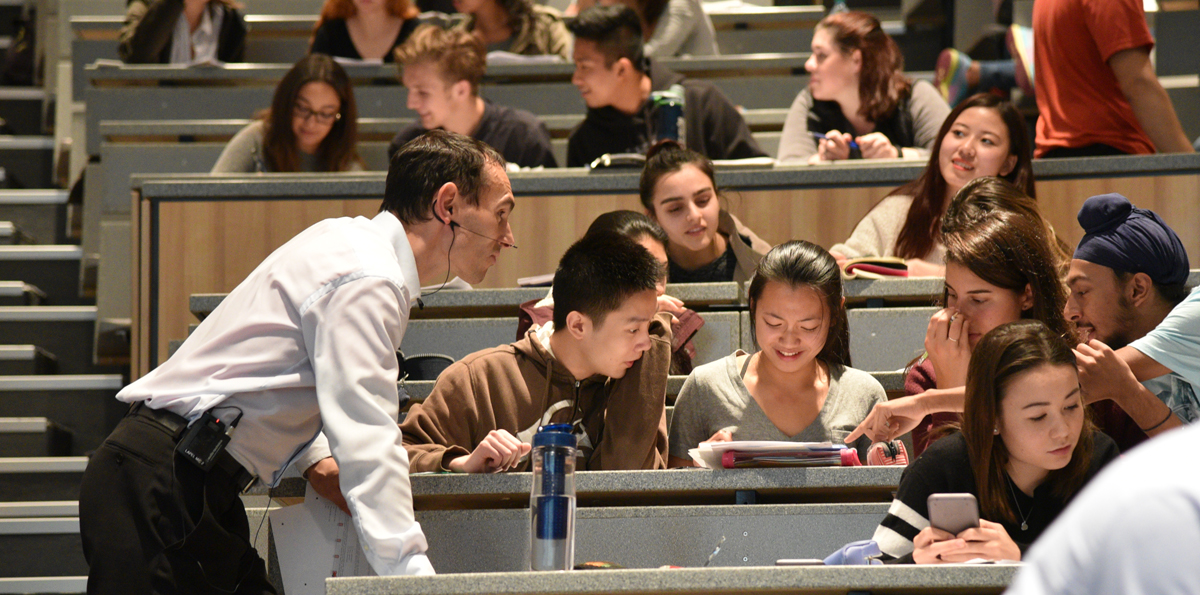NPR interviewed Nobel laureate Carl Wieman about his work to promote active learning as a more effective teaching model over traditional lecturing. Wieman cites research showing that active learning can dramatically boost learning and says that the data is so convincing it’s almost unethical to teach undergraduate students any other way.
He notes as a barrier, however, that most institutions still measure and value productivity, research and research funding over the quality of their teaching.
The interview highlights UBC as an institution that has broadly adopted the techniques that Wieman champions, especially in the sciences. Wieman started the Carl Wieman Science Education Initiative at UBC in 2007 to improve education across the Faculty of Science before moving to teach at Stanford in 2013.
In the Faculty of Science at UBC, teaching staff work closely with faculty members to act as coaches and provide information about new teaching methods and education research. “They can observe the class as a third party and give that feedback right back to the instructor who can then act on it right away,” said Sara Harris, professor of teaching in the Department of Earth, Ocean and Atmospheric Sciences at UBC.
Wieman says he hopes more institutions will prioritize teaching so that undergraduate education can be improved. “Improving education is a profoundly important issue in the modern world,” he said. “There are a lot of really hard problems that you don’t know how to solve. And this is one I and many others do know how to solve.”
The interview and accompanying article can be found here.
